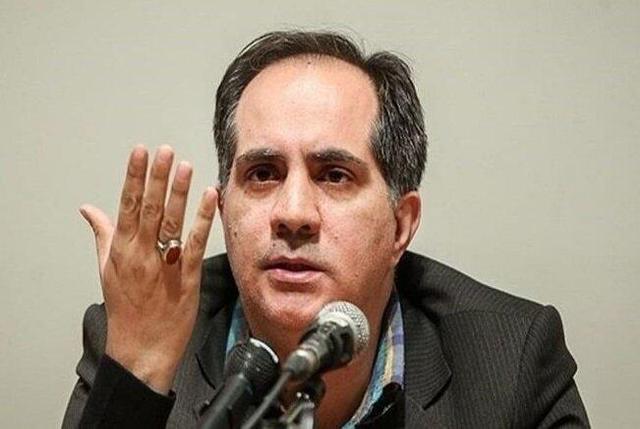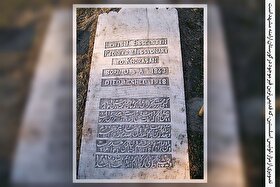Annexation, death penalty, elections: The bills on the menu for Israel’s parliament
Annexation, death penalty, elections: The bills on the menu for Israel’s parliament

Israel’s parliament, the Knesset, on Monday opened its winter session - the last before the country's next general elections, scheduled for October 2026, though that date could still change.
The session was marked by heightened political tensions, with coalition lawmakers taking aim at the Supreme Court and the judiciary, sparking objections and uproar from opposition members.
Opposition leader Yair Lapid, of the centrist Yesh Atid party, said during a parliament debate on Monday that “the State of Israel is in the midst of the most serious political crisis in its history”.
“Everything happens when the current government has lost control,” he added.
One of the key questions lawmakers will address in the coming months is whether to stick to the scheduled vote or call early elections.
Prime Minister Benjamin Netanyahu has yet to decide between the two options, according to the Israeli news outlet, TheMarker.
The winter session is expected to be heated, with several contentious bills likely to be brought forward for debate.
Middle East Eye takes a look at the main proposals expected to dominate the agenda.
Annexation
On the table of the Ministerial Committee for Legislation, the parliamentary body responsible for promoting new laws, there are two bills aimed at applying Israeli sovereignty to the occupied West Bank.
One proposal, submitted by lawmaker Limor Son Har-Melech of National Security Minister Itamar Ben Gvir’s Jewish Power party, states that “the State of Israel will apply its laws and sovereignty to the West Bank, in order to establish the status of these areas as an inseparable part of the sovereign State of Israel”.
Another bill, introduced by Avigdor Lieberman, head of the opposition party, Yisrael Beitenu, calls for the application of sovereignty specifically over the Israeli settlement of Ma’ale Adumim, near Jerusalem.
“Ma’ale Adumim is located in an area that has always been an inseparable part of the historic Land of Israel,” the bill reads, and therefore seeks to “establish its status as an inseparable part of the State of Israel.”
The death penalty
Other bills expected to come before the parliament this session include a proposal to impose the death penalty on those convicted of terrorism, and another to enable the prosecution of Hamas fighters accused by Israel of carrying out the 7 October 2023 attacks.
Ben Gvir, the minister overseeing prison affairs, has long advocated for the death penalty for Palestinians and harsher prison conditions.
Under his purview, Palestinian detainees have been placed under unprecedentedly tough conditions, including torture, starvation, and sexual assault.
Ben Gvir’s death penalty bill was given preliminary approval last month despite opposition from Netanyahu. On Saturday, the far-right minister reiterated his demand, calling for: “The death penalty law for terrorists - now.”
Palestinian prisoners' rights groups - the Commission of Detainees and Ex-Detainees Affairs and the Palestinian Prisoners’ Club - described the bill to execute Palestinian prisoners as an “unprecedented act of savagery”.
Ultra-Orthodox conscription
Another key issue on the parliament’s agenda is the ultra-Orthodox conscription bill - a measure that has dominated public debate in Israel throughout the war on Gaza.

The bill, which would exempt ultra-Orthodox men from mandatory military service, has been a central demand of the religious parties. Its failure to pass earlier this year led to the withdrawal of ultra-Orthodox factions from the coalition.
The dispute also prompted the replacement of the parliament’s Foreign Affairs and Defence Committee chair, Yuli Edelstein, with Netanyahu’s ally Boaz Bismuth, to facilitate the law’s passage.
According to the Ynet news outlet, Bismuth submitted a draft agreement between the government and ultra-Orthodox representatives outlining the terms of enlistment.
"The fate of the parliament will be determined by the future of the law exempting the ultra-Orthodox. This is the most important issue for the coalition," Ynet reported.
The government is also expected to advance a separate bill proposed by Likud lawmaker Galit Distel Atbaryan, aimed at preventing "anti-religious coercion".
The measure would require public institutions to install mezuzot, small religious scrolls placed on doorframes, and oblige judges to pass exams in Jewish law - provisions that the parliament’s legal counsel has warned could undermine freedom of religion and democratic principles.
Curbing the attorney general's powers
Another key target for the government this session is attorney general Gali Baharav-Miara.
According to Kan 11, Israel’s public broadcaster, the first bill expected to be advanced in the winter session would split the attorney general’s role - a long-standing demand of Netanyahu’s government.
The proposed change is widely viewed in Israel as part of a broader effort by the right-wing coalition to weaken the judiciary.
Before the war on Gaza, such moves had already sparked mass protests across the country, with hundreds of thousands rallying against what they called a “judicial coup”.











